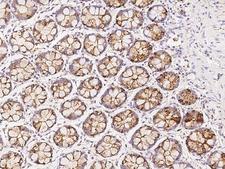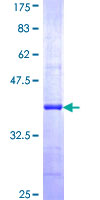order histories, retained contact details for faster checkout, review submissions, and special promotions.
Forgot password?
order histories, retained contact details for faster checkout, review submissions, and special promotions.
Location
Corporate Headquarters
Vector Laboratories, Inc.
6737 Mowry Ave
Newark, CA 94560
United States
Telephone Numbers
Customer Service: (800) 227-6666 / (650) 697-3600
Contact Us
Additional Contact Details
order histories, retained contact details for faster checkout, review submissions, and special promotions.
Forgot password?
order histories, retained contact details for faster checkout, review submissions, and special promotions.
AP1G2
Adaptor-related Protein Complex 1, Gamma 2 Subunit
Adaptins are important components of clathrin-coated vesicles transporting ligand-receptor complexes from the plasma membrane or from the trans-Golgi network to lysosomes. The adaptin family of proteins is compsed of four classes of molecules named alpha, beta-, beta prime- and gamma- adaptins. Adaptins, together with medium and small subunits, form a heterotetrameric complex called an adaptor, whose role is to promote the formation of clathrin-coated pits and vesicles. The protein encoded by this gene is a gamma-adaptin protein and it belongs to the adaptor complexes large subunits family. This protein along with the complex is thought to function at some trafficking step in the complex pathways between the trans-Golgi network and the cell surface. Several alternatively spliced transcript variants of this gene exist, but their full-length nature is not known.
| Gene Name: | Adaptor-related Protein Complex 1, Gamma 2 Subunit |
| Synonyms: | AP1G2, G2AD, Gamma2-adaptin |
| Target Sequences: | NM_003917 NP_003908.1 O75843 |



If you do not find the reagent or information you require, please contact Customer.Support@LSBio.com to inquire about additional products in development.









